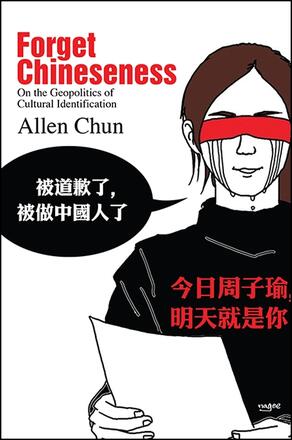
Forget Chineseness
On the Geopolitics of Cultural Identification
Alternative formats available from:
Critiques the idea of a Chinese cultural identity and argues that such identities are instead determined by geopolitical and economic forces.
Description
Forget Chineseness provides a critical interpretation of not only discourses of Chinese identity—Chineseness—but also of how they have reflected differences between "Chinese" societies, such as in Hong Kong, Taiwan, People's Republic of China, Singapore, and communities overseas. Allen Chun asserts that while identity does have meaning in cultural, representational terms, it is more importantly a product of its embeddedness in specific entanglements of modernity, colonialism, nation-state formation, and globalization. By articulating these processes underlying institutional practices in relation to public mindsets, it is possible to explain various epistemic moments that form the basis for their sociopolitical transformation.
From a broader perspective, this should have salient ramifications for prevailing discussions of identity politics. The concept of identity has not only been predicated on flawed notions of ethnicity and culture in the social sciences but it has also been acutely exacerbated by polarizing assumptions that drive our understanding of identity politics.
Allen Chun is Research Fellow at the Institute of Ethnology, Academia Sinica, Taiwan. He is the author of Unstructuring Chinese Society: The Fictions of Colonial Practice and the Changing Realities of "Land" in the New Territories of Hong Kong.
Reviews
"Forget Chineseness covers an important topic that continues to stir debate among Chinese-speaking communities … It will add much to discussion of globalisation, identity formation, capitalism, imperialism, and modernity, among other themes, in graduate seminars … Chun's book is a timely reminder of how global and historical phenomena continue to shape identification, a process that is certainly not limited to 'Chineseness' but applicable to other presumed identities as well. " — Journal of Contemporary Asia
"Readers who have not previously encountered Chun's work will find important insights on the political projects of Chineseness over three decades. Readers who are familiar with Chun's scholarship will benefit from having these texts in a single volume. Forget Chineseness would work well for teaching at the graduate level, and is a useful contribution for scholars of China, cultural studies, critical theory, modernity, and global studies. " — Pacific Affairs
"It is rare that one reads a book that so thoroughly challenges so many commonly held basic assumptions. For this reason, this book evades succinct summarization and is best read carefully, perhaps twice over. Anyone who takes the time to do so will find the way that one talks and thinks about 'China' forever changed. " — The China Quarterly
"Forget Chineseness does not only contribute astute observations for scholars in Asian or Cultural Studies, it is also an important book for postcolonial theorists. The book's importance is in its problematisation of prevailing notions of identity, culture and Chineseness as well as its invitation for postcolonial scholars to think beyond oppositional discourses. Chun's voice is strong, passionate and bold; his call to explore as well as transcend identity politics of Chineseness, if not already heeded, will be followed by many. " — Postcolonial Studies
"…a good example of disentangling complicated historical materials and presenting ambiguous identities in a relatively constructive way. " — Cultural Sociology